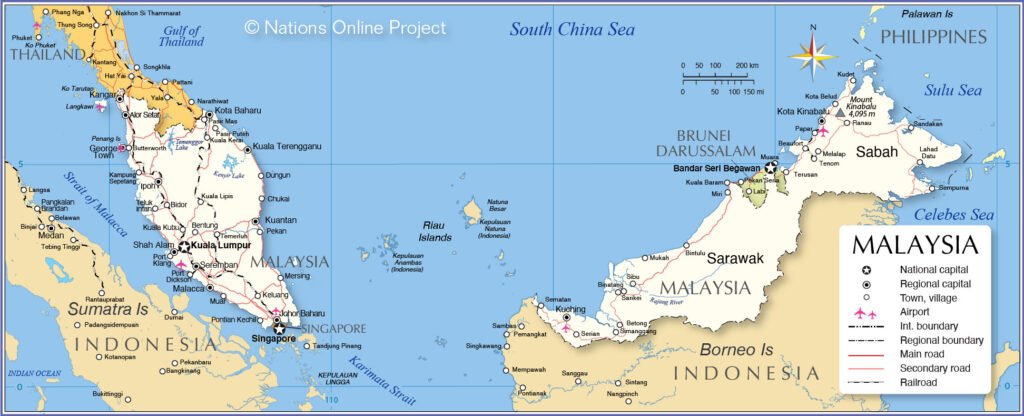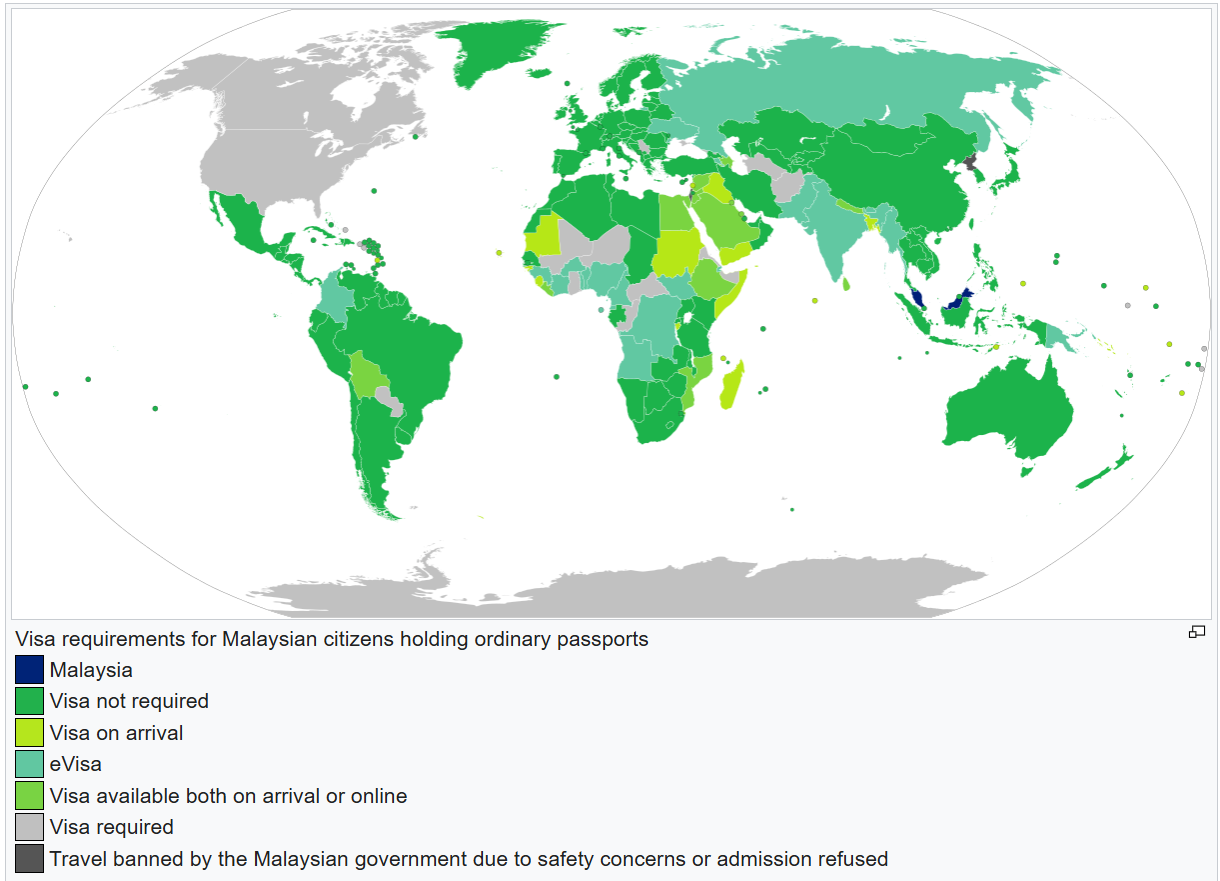How To Get Residency in Malaysia: A Comprehensive Guide
Capital: Kuala Lumpur
Population: 35,464,810 (2024, 43rd)
Ethic Group: 70.2% Bumiputera, 22.9% Chinese, 6.6% Indian
Area: 330,803 km2(67th)
Offical Language: Malay
Currency: Malaysian ringgit (As of Aug 19, 2025, 1 ringgit = 0.24 USD)
GDP per Captial (PPP): $43,470 (2025, 66th)
Human Development Index: 0.819 (2023, 67th)

Country Profile:
Malaysia is a diverse country in Southeast Asia, divided into two parts by the South China Sea: West and East Malaysia. West Malaysia is the economic and political hub. The two states in East Malaysia, Sabah and Sarawak, have a degree of autonomy and are famous for their natural landscapes and wildlife.
The Malaysian economy is primarily driven by manufacturing, oil and gas, palm oil, and tourism. While Kuala Lumpur is the country’s financial and business center, it is not the administrative capital.
Visa & Immigration System:
Malaysia’s most well-known immigration programs are its four residency by deposit schemes: the Malaysia My Second Home (MM2H) program, the Premium Visa Programme (PVIP), and two regional programs in East Malaysia: the Sarawak My Second Home (S-MM2H) and the Sabah My Second Home (S-MM2H).
Malaysia My Second Home (MM2H):
The main MM2H program requires applicants to make a local bank deposit ranging from $150,000 to $1,000,000 USD in exchange for long-term residency, from 5 years up to a permanent status.
Premium Visa Programme (PVIP):
Launched in 2022, the PVIP is a newer deposit-based residency program. It has higher financial requirements than the main MM2H program, demanding a local deposit of RM1,000,000 (approximately $212,000 USD).
Actually, the PVIP offers significant advantages, including no minimum stay requirement, a lower age limit of 18, and the ability for participants to freely work, do business, and buy property in Malaysia.
East Malaysia Programs:
The two semi-autonomous states in East Malaysia have also introduced their own versions of the program:
-
Sarawak My Second Home (S-MM2H): This is currently the program with the lowest requirements in Malaysia. It requires applicants to have a certain level of financial capability (proven income or savings) and make a fixed deposit of RM500,000 (approximately $106,000 USD) in a local bank.
-
Sabah My Second Home (S-MM2H): This program was officially approved in April 2024 and opened for applications in July. It has three tiers: Silver, Gold, and Platinum. The lowest financial requirement for the Silver tier is a fixed deposit of RM500,000 plus the purchase of a local property valued at a minimum of RM600,000 (approximately $127,000 USD).

In addition to these second home programs, Malaysia also offers work-based immigration pathways.
If you are working in Malaysia, you can be nominated by your company to apply for Malaysian residency. To be eligible, you need to score at least 65 points out of 120 on a scoring system that evaluates seven criteria, including age, qualifications, Malay language proficiency, and local work experience.
You can also directly apply for the Skilled Professional Immigration program if you work in an in-demand sector like law or surgery.
Beyond these standard channels, Malaysia launched a Digital Nomad Visa Program in 2022. However, this visa has a maximum validity of only one year and can be renewed just once. It does not provide a pathway to Malaysian permanent residency or citizenship, and it does not allow for long-term residency.
Permanent Residency & Citizenship:
Most popular long-term residency visa programs in Malaysia do not provide a direct path to permanent residency.
The Malaysian government grants permanent residency visas to specific categories of people, such as the spouses of citizens, investors, and highly skilled professionals or experts.
For general applicants, a points-based system is used to evaluate eligibility for permanent residency. This system considers various factors to determine if a person qualifies.
A foreigner may be eligible to apply for Malaysian citizenship through naturalization if they have resided in Malaysia for at least 10 continuous years out of the last 12 and have a sufficient understanding of the Malay language.
Passport Power:
Malaysia does not recognize dual citizenship. The Malaysian passport is ranked 11st globally, allowing its holders visa-free access to 181 countries and regions around the world. (Aug 19th, 2025)

Useful Links:
Malaysia My Second Home Program:www.imi.gov.my/index.php/en/main-services/malaysia-my-second-home-mmh2-en/m2h.com/
Sarawak MM2H: https://smm2h.sarawaktourism.com/
Malaysia De Rantau Nomad Pass:https://mdec.my/derantau